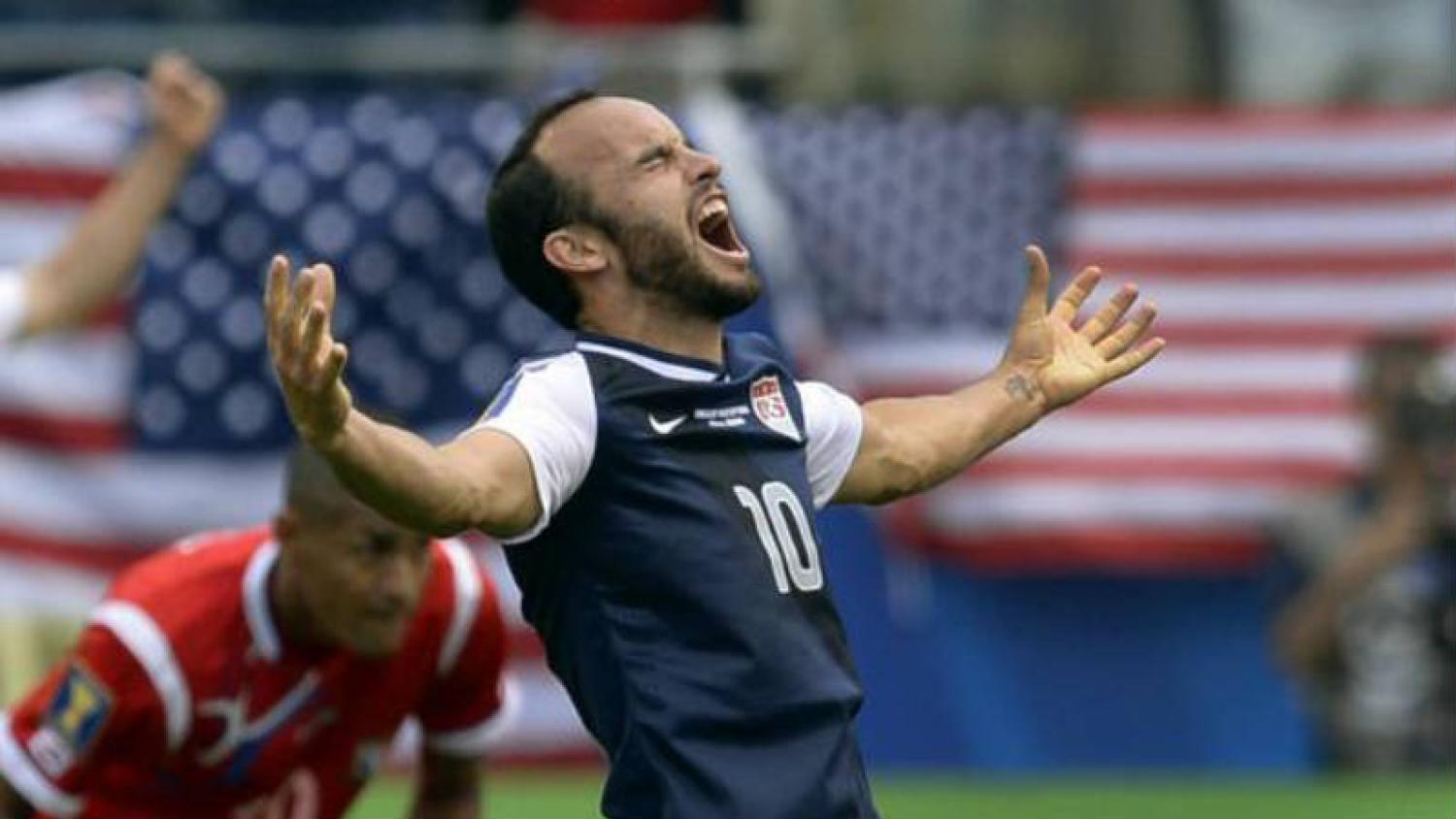Today there arose one of those occasions when we in sports media make a heroic effort to make something out of nothing.
I refer, of course, to the in-progress Landon Donovan-U.S. Soccer faux-controversy, in which Jurgen Klinsmann’s son Jonathan either did or did not send Landon Donovan an apology via email for tweeting: “HHAHAHAHAHAHAH DONAVAN I DIDN’T EVEN NOTICE UNTIL MY PHONE NOTIFIED ME (four laughing/crying emojis) HAHA.”
Klinsmann deleted his Twitter account pretty much immediately after the media discovered said tweet.
Landon Donovan is inarguably the most important player in the history of U.S. soccer, and he has been shown, over the course of his career, to get a tad sensitive sometimes. He obviously has seen the tweet and the tweet pissed him off and he wants an apology. Fine. He says he hasn’t received an apology. Fine. Anonymous sources (a terrible journalism practice that is all too common in sports journalism) at U.S. soccer say Jonathan Klinsmann did apologize to Donovan, via email.
This is not the place to go on a rant about manners but good lord, an email? Did he not have a napkin to hastily scribble it on? This is like when a child does something wrong and is forced to apologize and apologizes in the least sincere-sounding way possible. Say it like you mean it, Klinsmann. This is, of course, assuming he sent the email in question.
Jonathan Klinsmann has a lot to apologize for. Spelling Donovan’s last name wrong, for instance. Also, his egregious use of caps lock and emojis. And then the content of the tweet, certainly unbecoming of a person as affiliated with U.S. Men’s Soccer as the National Team’s coach’s son. However, not unbecoming of someone who was a junior in high school when he tweeted said tweet.
Expected, really. High schoolers are stupid. They do stupid things. We should not flip out and act all huffy when this happens. Instead, we should go about our business like nothing happened, because, really, nothing did.
What I’m trying to say is that we in sports media need to take a long hard look at ourselves in the mirror and ask ourselves this: who cares? Or, if it’s too late for that particular question to be posed, ask “why do I care?” I am almost positive we will not be able to come up with an answer that makes any semblance of sense.
Landon Donovan is playing his last game in a United States uniform Friday. That is the story. It is a good story.
The "he said/no he didn’t say," and "he emailed an apology/no he didn’t email" banter between the greatest soccer player the United States has produced and a person who will be living in a college dorm room next year is not a story, and we should stop pretending that it is.
Alexi Lalas, the person who originally reported the non-story and set this whole kerfuffle in motion, also seems to have the most grounded perspective of anyone else in the soccer mediaverse.
Lalas took to Twitter, a platform that is increasingly figuring into sports reporting way more than it should, and said, after reporting that sources had told him about the email/non-email “controversy":
A source in my head tells me that I don’t really care about any of this.
— Alexi Lalas (@AlexiLalas) October 8, 2014
Lalas looks like the smartest guy in the chat room on this one — which is an interesting development, especially for people who have watched Lalas on television — but he’s right. None of us should care what Jonathan Klinsmann has to say about Landon Donovan.
If this column in any way contributed to the problem, I am truly sorry, but this is an issue that needs to be addressed: this tendency to freak out over what, in the scheme of things, amounts no not much, if that. I don’t know what causes this phenomenon.
Could it be that these people have too much time on their hands? I doubt it. These people are journalists. Journalists are busy. They shouldn’t have the time to chase down stupid shit like this and make a big deal about it. But they do, and I think I know why.
The answer is supplied by Paul Wall and Chamillionaire, two wholly unlikely sources for wisdom concerning correct journalism practices: Controversy Sells.
There is no denying this is true, and this is the reason people who are normally rational chase silly little “controversies” like this. The lure of the spotlight is irresistible, and whoever reports at the forefront of the “controversy” gets to be in the spotlight.
Good for us in the media, but bad for the rest of you in readerland, because you can’t un-know the drivel that we publish about these “controversies.”
If you read this column all the way to the end, you now know far too much about the non-controversy concerning an email that may or may not have been sent, the greatest player in U.S. history and Herr Klinsmann’s progeny.
And for that, I am truly sorry.
Follow Sam Klomhaus on Twitter @SamKlomhaus



